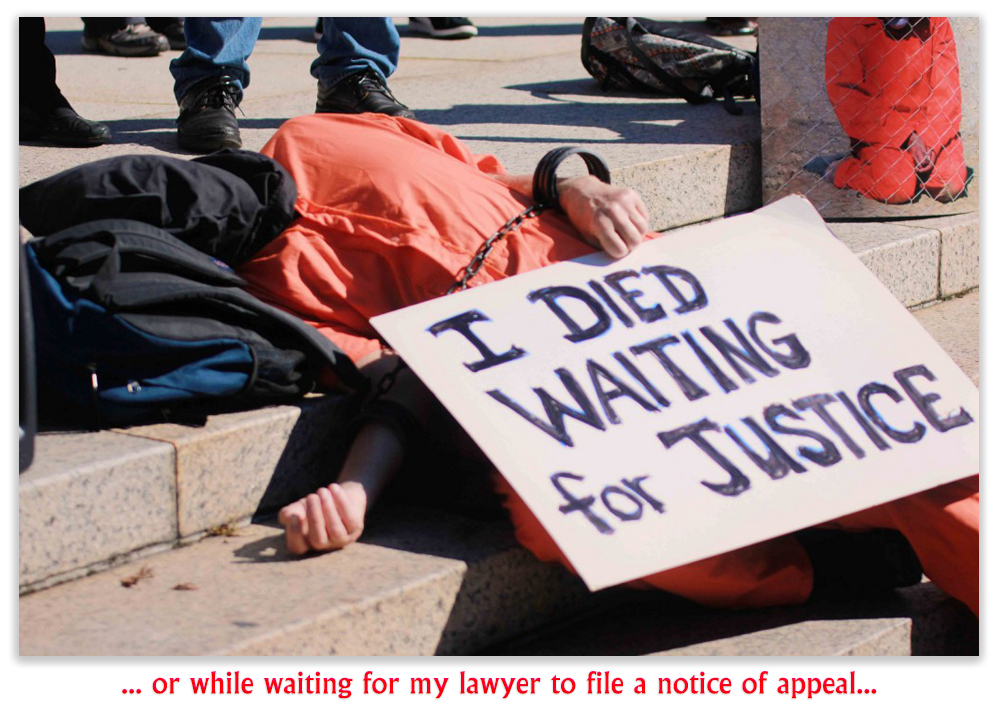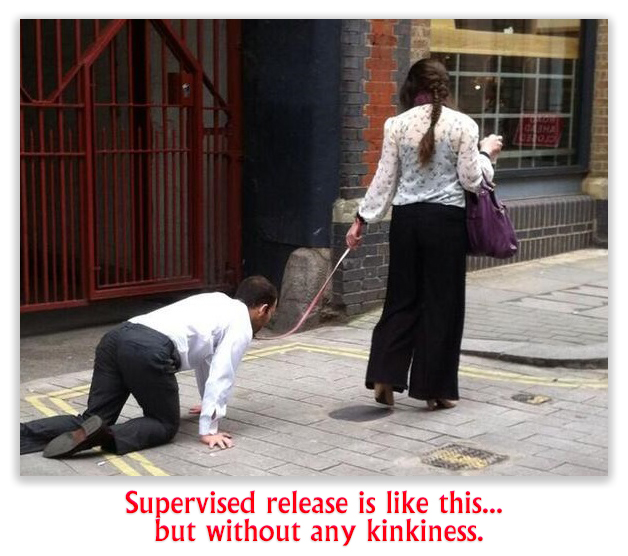We post news and comment on federal criminal justice issues, focused primarily on trial and post-conviction matters, legislative initiatives, and sentencing issues.

AN UNSURPRISING WIN AND A PROMISING ORAL ARGUMENT
The Supreme Court last week ruled that even if a defendant’s plea agreement includes an appeal waiver, defense counsel renders ineffective assistance of counsel by not filing a notice of appeal if the defendant asks for one.
The decision – Garza v. Idaho – is not such a big deal. Every circuit that has considered the question, except for the 3rd and 7th, already follows the rule.
 Since the 2000 Roe v. Flores-Ortega decision, if a defendant asks defense counsel to file a notice of appeal, and the lawyer does not, it is considered ineffective assistance of counsel (which violates the 6th Amendment) regardless of whether the appeal had any chance of winning. Some courts, however, have wondered whether the Roe rule should apply where a defendant’s plea agreement waiving appeal rights. A few places, including Idaho, have held that in that case, failure to file a notice of appeal would be ineffective assistance of counsel only if the defendant could show a reasonable probability that he or she would have won on appeal.
Since the 2000 Roe v. Flores-Ortega decision, if a defendant asks defense counsel to file a notice of appeal, and the lawyer does not, it is considered ineffective assistance of counsel (which violates the 6th Amendment) regardless of whether the appeal had any chance of winning. Some courts, however, have wondered whether the Roe rule should apply where a defendant’s plea agreement waiving appeal rights. A few places, including Idaho, have held that in that case, failure to file a notice of appeal would be ineffective assistance of counsel only if the defendant could show a reasonable probability that he or she would have won on appeal.
 Last week, the Supreme Court disagreed. It noted that even a defendant waiving appeal retains the right to appeal limited issues (such as claiming defense counsel was ineffective for ever getting the defendant to sign the plea agreement to begin with). The Supremes said that filing the one-page notice of appeal is very easy (the notice does not even have to list the issues being appealed), and most defendants have a pretty ill-formed idea of what the issues should be before the transcripts are prepared. For those reasons, SCOTUS said, the Roe rule should apply for plea waivers: if your lawyer fails to file a notice of appeal after you ask him or her to, it is ineffective assistance of counsel, even where you waived your appeal rights.
Last week, the Supreme Court disagreed. It noted that even a defendant waiving appeal retains the right to appeal limited issues (such as claiming defense counsel was ineffective for ever getting the defendant to sign the plea agreement to begin with). The Supremes said that filing the one-page notice of appeal is very easy (the notice does not even have to list the issues being appealed), and most defendants have a pretty ill-formed idea of what the issues should be before the transcripts are prepared. For those reasons, SCOTUS said, the Roe rule should apply for plea waivers: if your lawyer fails to file a notice of appeal after you ask him or her to, it is ineffective assistance of counsel, even where you waived your appeal rights.
Perhaps more significant, the Supremes heard oral argument last week that could bring down supervised release. The case question the constitutionality of 18 USC 3583(k), which requires convicted sex offenders to return to prison for at least five years if a judge finds they have committed certain crimes. The defendant in the case, Andre Haymond, served time for child porn, and was returned to prison after he violated supervised release. He argued that the law violates his right to have his sentence determined by a jury, rather than a judge, beyond a reasonable doubt.
Eight justices seemed likely to agree with him, even if it was not yet clear how they will remedy the constitutional violation. Several questioned the government’s view that a jury was not required to find the facts leading to a supervised release violation and more prison time. Much of the oral argument focused less on whether the law was unconstitutional and more on how to fix it.
 Haymond is consequential to all of supervised release. As it is, while on supervised release, a defendant is subject to violation for a variety of technical, non-criminal conduct, and may be returned to prison if the court finds by a mere preponderance of the evidence that the defendant committed the violation. Haymond could upend this, extending the constitutional guarantees of Apprendi v. New Jersey and Blakely v. Washington (that people can lose liberty only upon admissions of guilt or findings of a jury beyond a reasonable doubt) to supervised release violations as well. In fact, Justice Samuel Alito – the only Justice in the government’s corner – complained during argument that a ruling for Haymond could “bring down the entire supervised release system.”
Haymond is consequential to all of supervised release. As it is, while on supervised release, a defendant is subject to violation for a variety of technical, non-criminal conduct, and may be returned to prison if the court finds by a mere preponderance of the evidence that the defendant committed the violation. Haymond could upend this, extending the constitutional guarantees of Apprendi v. New Jersey and Blakely v. Washington (that people can lose liberty only upon admissions of guilt or findings of a jury beyond a reasonable doubt) to supervised release violations as well. In fact, Justice Samuel Alito – the only Justice in the government’s corner – complained during argument that a ruling for Haymond could “bring down the entire supervised release system.”
Statistics say one out of three people released on supervised release will be violated, making this case huge.
Ohio State University law professor Doug Berman said in his Sentencing Law and Policy blog that “there may now be eight Justices prepared to extend Apprendi/Blakely rights to supervised release revocation. Now we what to see just how big the ultimate opinion will be (and how loudly Justice Alito will complain about more procedural rights for criminal defendants).”
Garza v. Idaho, Case No. 17-1026 (Feb. 26, 2019)
United States v. Haymond, Case No. 17-1672 (argued Feb. 26)
Sentencing Law and Policy, Haymond seemingly to become major Apprendi progeny altering federal supervised release revocations (Feb. 26)
– Thomas L. Root

